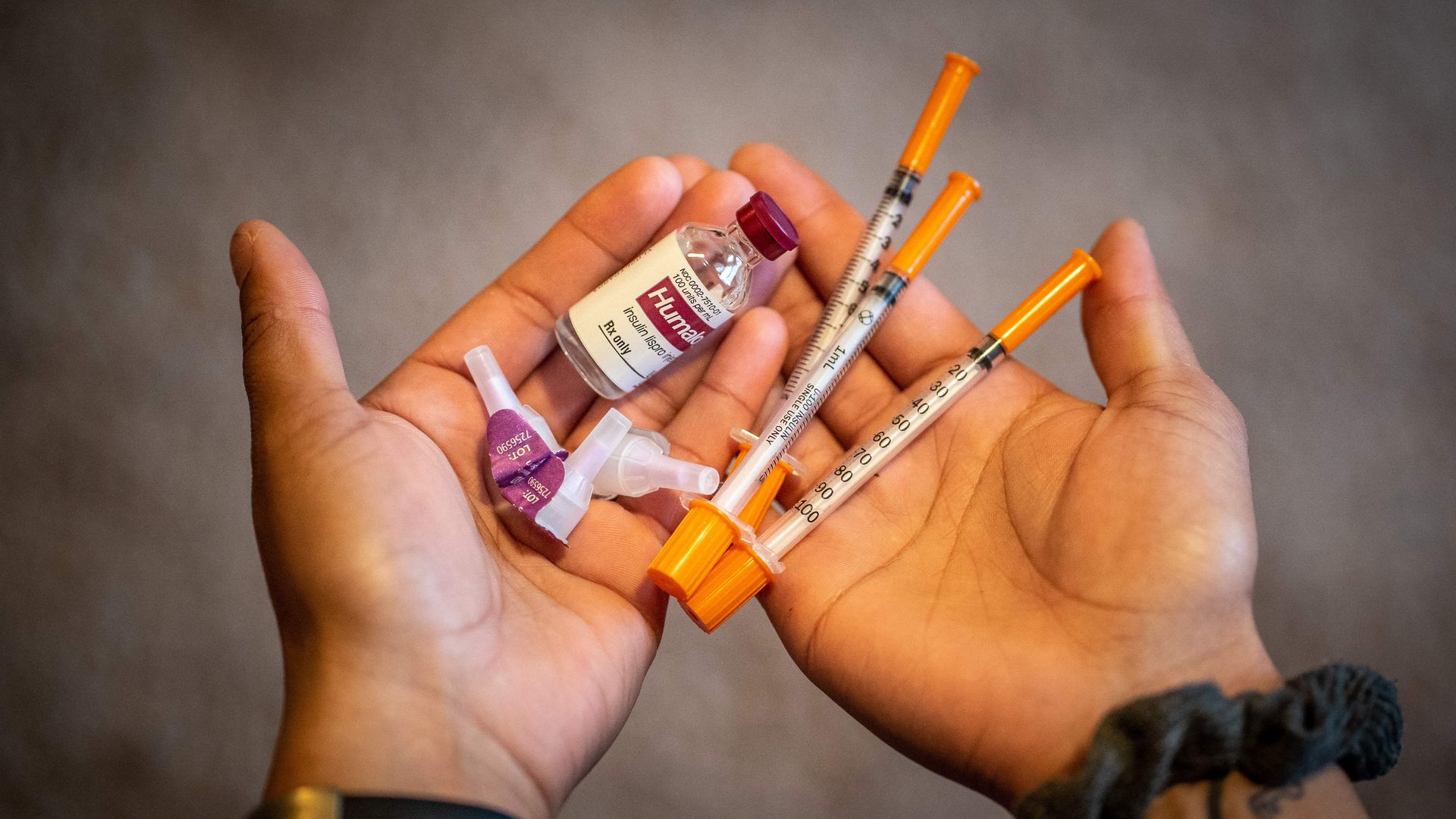The boom times of insulin sales
Add Axios as your preferred source to
see more of our stories on Google.

Photo: Kerem Yucel/AFP via Getty Images
The three drug companies that control the insulin market have seen their net sales climb over the past 12 years even as they have had to agree to bigger discounts, according to an Axios analysis of insulins sold by Eli Lilly, Novo Nordisk and Sanofi.
The big picture: Drug manufacturers have largely blamed the broken insulin market — where many people with diabetes are rationing their medication — on other actors within the supply chain. But insulin makers have still been able to collect more money overall and retain their power over the market.


By the numbers: Net global insulin sales, after accounting for rebates, rose by at least 80% from 2008 through 2019 for each of the big three companies.
- There's a lot of variation in sales by brand (see all of them).
- For example, revenue from Sanofi's Lantus fell in 2016, after its patent expired and CVS and UnitedHealth excluded it from their coverage lists. Sales shifted to a competitor, Eli Lilly's Basaglar.
Between the lines: Revenue is a function of price and quantity, and both have risen.
- Insulins' list prices have gone up drastically over the past two decades. List prices matter a lot for the uninsured and people with less generous health plans.
- Net prices have not increased as much, and for some insulins they have dropped, because pharmacy benefit managers have extracted higher discounts, called rebates, in exchange for giving certain insulins preferred coverage status.
- The growing prevalence of diabetes has led to higher insulin use, but outside data shows total prescriptions and daily insulin use have grown modestly over the past several years. Eli Lilly, Novo Nordisk and Sanofi all declined to say how many insulin vials and pens they have sold.
The intrigue: Insulin sales are rising even though many of the drugs' patents have expired.
- Humalog, NovoLog and Lantus all lost patent protection over the past several years. Their revenues have dipped, but they still generate more than $2.5 billion each in net sales.
- Patents for Humulin and Novolin expired more than 15 years ago, but they still generate more than $1 billion each in net sales.
- Even though some patents have lapsed, developing cheaper insulins is difficult and costly, and the incumbent players are fighting regulatory agencies to delay competition.
What they're saying: Eli Lilly, Novo Nordisk and Sanofi submitted statements but did not address some questions about their net sales.
- Eli Lilly attributed higher sales to more people getting diagnosed with diabetes.
- Novo Nordisk said "a lot of factors like increase of prevalence" contributed to higher sales.
- Sanofi focused on its lower net price and lower sales in recent years, but not factors that led to higher sales over time.
The bottom line: Discounts and price negotiations have inconvenienced, not fundamentally hurt, insulin makers. And patients, along with the public, are footing the bills.
